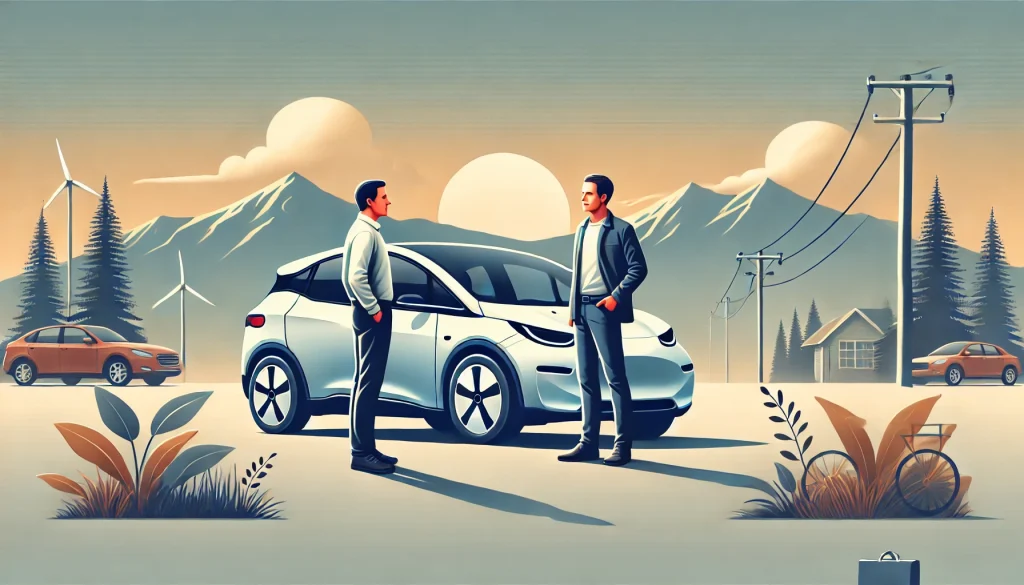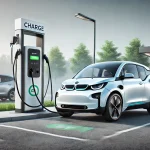With the growing popularity of electric vehicles (EVs), many consumers are considering buying a used electric car as a more affordable way to join the EV revolution. While purchasing a pre-owned EV can offer significant cost savings, it also comes with unique considerations compared to buying a traditional gasoline car. This guide outlines the key factors to consider when buying a used electric vehicle to ensure you make a smart and informed decision.
Battery Health and Capacity
The battery is the most crucial component of any electric vehicle, and its condition will largely determine the car’s performance and range. Over time, EV batteries degrade, losing some of their capacity to hold a charge. When evaluating a used EV, it’s important to check the current battery health and its remaining capacity.
Most electric vehicles come with a built-in feature that displays the battery’s current capacity relative to when it was new. Be sure to ask the seller or dealership for this information. A battery that has lost too much capacity may significantly reduce the vehicle’s range, and replacing a battery can be expensive. However, many manufacturers offer warranties on their batteries, so check if the car’s battery is still under warranty and what the terms are.
Range
The range of an electric vehicle refers to how far it can travel on a single charge. The original range of the EV when it was new will have likely decreased if the car is a few years old, due to natural battery degradation. Before purchasing a used EV, ensure that the range still meets your daily driving needs. Consider how much range you need for commuting, running errands, and longer trips, and compare it to the current range of the used electric vehicle.
For buyers with access to home or workplace charging, range may be less of a concern, but it is still crucial to ensure the car has enough capacity to comfortably cover your regular travel distances.
Charging Options
When buying a used EV, it’s important to understand the charging options available for the vehicle. Most electric cars come with Level 1 (standard household outlet) and Level 2 (240V home or public charging) charging capabilities. However, not all used EVs are equipped for fast charging (DC fast charging), which can significantly reduce charging time during long trips.
If you anticipate needing to charge quickly on the go, check whether the used EV supports DC fast charging and if the necessary port is included. Also, research the availability of charging stations in your area and ensure they are compatible with the car you’re considering.
Vehicle History and Maintenance
Like any used car, it’s essential to review the vehicle’s history before making a purchase. Check for any accidents, major repairs, or recalls that the vehicle may have undergone. While EVs generally require less maintenance than gasoline cars due to fewer moving parts, issues with the battery, electric motor, or charging system can be costly to repair.
Request a full service history from the seller to ensure the car has been properly maintained. Regular software updates are also critical for EVs, as these updates can improve performance and add new features. Verify that the vehicle has received all necessary updates from the manufacturer.
Tire Condition and Wear
EVs are known for their quick acceleration and heavy battery packs, which can put more strain on tires than traditional vehicles. When inspecting a used EV, check the condition of the tires and look for uneven wear patterns. Worn-out or unevenly worn tires may indicate alignment issues or heavy use. Replacing tires can be an additional expense, so factor this into the total cost of the vehicle.
Brakes and Regenerative Braking System
Electric vehicles use regenerative braking, which helps recharge the battery by converting the car’s kinetic energy into electricity when you slow down. This system reduces the wear on traditional brakes, meaning that the brake pads and rotors in EVs often last much longer than those in gasoline cars. However, it’s still important to check the condition of the brakes on a used EV to ensure they are functioning properly.
Test drive the vehicle and ensure that the regenerative braking system is working as expected. It should smoothly slow down the vehicle when you lift your foot off the accelerator, reducing the need to use the brake pedal for most stops.
Software and Tech Features
Many modern electric vehicles come with advanced tech features, such as infotainment systems, autopilot capabilities, and driver-assist technologies. These features often improve over time through software updates. When buying a used EV, check the current software version and see if any updates are available from the manufacturer.
Make sure that all tech features, including navigation, entertainment, and safety systems, are fully functional. If the car is equipped with autonomous or driver-assist features, test these systems during your test drive to ensure they are working correctly.
Incentives and Rebates for Used EVs
In some regions, government incentives and rebates are available for purchasing used electric vehicles. These incentives can make a pre-owned EV even more affordable. Check with local, state, or national authorities to see if you qualify for any financial incentives for buying a used EV.
Additionally, some utilities offer rebates or lower electricity rates for EV owners, which can further reduce the overall cost of owning and operating an electric vehicle.
Conclusion
Buying a used electric vehicle can be an excellent way to enjoy the benefits of electric mobility at a lower price point. However, it’s essential to be mindful of factors such as battery health, range, charging options, and vehicle maintenance. By carefully inspecting the car, understanding its capabilities, and researching available incentives, you can make a smart and informed decision when purchasing a pre-owned EV. With the right approach, you’ll enjoy the savings and sustainability that come with driving electric.



Is it worth considering buying a hybrid car?
Why not? Absolutely, yes! Choose a car you like and add a little more happiness to your life
Oh, it’s probably easier than it looks. Honestly, there’s not much that can go wrong with an electric car. My friend got a used Tesla and he’s super happy with it!
Yo for real?? You gotta spill the deets on your car! 😁 I’m lowkey tryna cop one just like it! 😄
Used EVs: good deal? 🤔🚗 Check the battery & range! ⚡ Smart shopping = happy driving! ✅
Used EVs: smart buy! 🤑🚗 Cheaper & still awesome! Check battery, then enjoy the electric life! ⚡💚
Nows the time to buy ev
Hah readingarticles about buying ev without money😂😂
lol used EVs r prob risky 👎